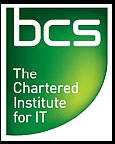Invited Speakers
Prof Kris Hammond, Northwestern University

ICCBR’11 Talk
title: Reason as Search: Supporting
intelligence with distributed memory.
Abstract:
The central idea behind Case-Based Reasoning has always been the notion that reasoning can be supported using memories of past problem solving. In this talk, I will explore the notion that this idea of “Reasoning as Remembering” can be transformed into “Reasoning as Search”. The primary issues in this is how to map problem solving needs onto the queries required to find initial candidate, filter those candidates for relevance and then manage the exploitation of the results. I will discuses how we have approached this in Listening Post and Baleen, two systems that track the world of social media, news and the web to support reasoning.
Bio:
Kristian Hammond is Professor of Electrical Engineering and Computer Science in the McCormick School of Engineering at Northwestern University, and Director of Northwestern’s Center for Innovation in Technology, Media and Journalism. Professor Hammond received his PhD from Yale University and was on the faculty of the University of Chicago before joining Northwestern.
While at the University of Chicago, Dr. Hammond began to shape a vision of frictionless information systems; systems that make use of the context of a user’s activities to better serve them. In1998, he moved to Northwestern University to form the Intelligent Information Laboratory (InfoLab). The InfoLab is focused on frictionless information systems that make use of a variety of user contexts to support and radically transform user experiences in the areas of information retrieval, media delivery, collaborative environments, news gathering and generation, intelligent browsing and personalized recommendation.
Professor Hammond has served on numerous
program committees as well as the Chicago Mayor’s Advisory Council
on Technology. He has worked with a number of start-ups over the
years and is currently CTO of Narrative Science, a company that
generates human quality text from data and online media.
Prof Steffen Staab, University of Koblenz-Landau

ICCBR’11 talk Title / abstract:
Ontologies and Similarity
Ontologies are frequently used to
organize information and to improve information retrieval. At such a
point ontology technologies and similarity metrics seem to interfere
naturally and there is a long history of projects that went this
path. However, when analysing the situation it appears that we lack
some foundations for having a sound and efficient integration of
ontology reasoning and similarity metrics. In particular, we will
first consider the problems that stem from the logics-based
definition of ontology concepts, which may render similarity metrics
become either unsound or meaningless. Second, in the case of digital libary thesauri we will consider how the pragmatics of use
deeply affect the definition of ontology concepts and how these
concepts should be related to similar concepts in related
ontologies.
Bio
Steffen Staab is professor for
databases and information systems at the University of
Koblenz-Landau. He is director of the institute for Web Science and
Technologies (West; http://west.uni-koblenz.de).
He is programme chair of WWW 2012 and editor-in-chief of Elsevier's
Journal of Web Semantics. His interests are related to many aspects
of Web Science, such as Semantic Web, Web Retrieval, Social Web,
Multimedia Web, Software Web and Interactive Web. Steffen is project
coordinator for the EU Integrated Project "Robust - Risk and
Opportunities Management of Huge-Scale Business Community
Cooperation". Previously, Steffen held positions as
researcher, project leader and lecturer at the University of
Freiburg, the University of Stuttgart/Fraunhofer Institute IAO, and
the University of Karlsruhe and he is a co-founder of Ontoprise
GmbH.
J. William Murdock

ICCBR'11 Industry day talk. Title/ Abstract: Structure Mapping for Jeopardy! Clues
The Jeopardy! television quiz show asks natural-language questions and requires natural-language answers. One useful source of information for answering Jeopardy! questions is text from written sources such as encyclopedias or news articles. A text passage may partially or fully indicate that some candidate answer is the correct answer to the question. Recognizing whether it does requires determining the extent to which what the passage is saying about the candidate answer is similar to what the question is saying about the desired answer. This paper describes how structure mapping (an algorithm originally developed for analogical reasoning) is applied to determine similarity between content in questions and passages. That algorithm is one of many used in the Watson question answering system, It contributes a significant amount to Watson’s effectiveness.
Bio
J. William Murdock is a research staff member at the IBM T. J. Watson Research Center. Before joining IBM, he worked at the United States Naval Research Laboratory. He has worked on the Watson deep question answering system since its inception. His research interests include natural-language semantics, analogical reasoning, knowledge-based planning, machine learning, and computational reflection. In 2001, he earned his Ph.D. in computer science from the Georgia Institute of Technology.



